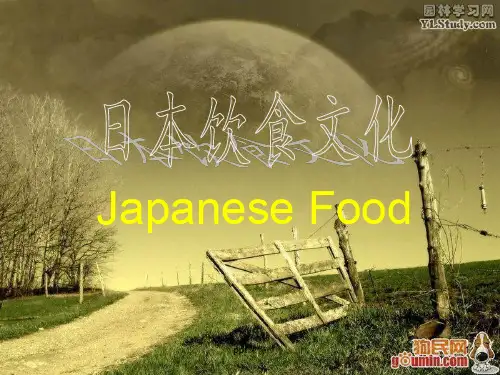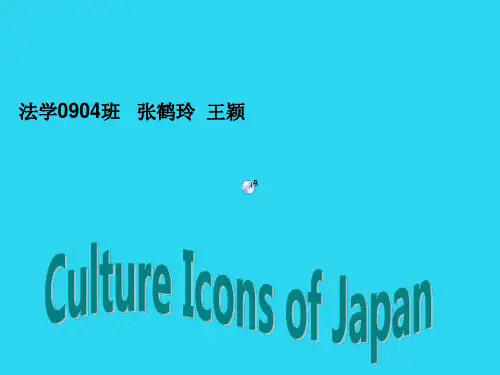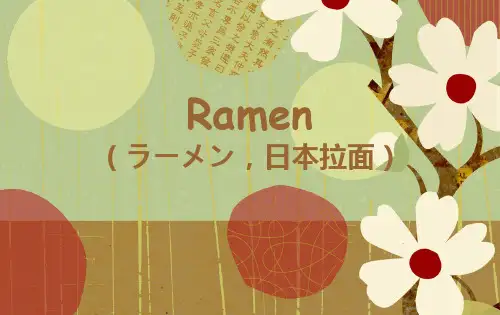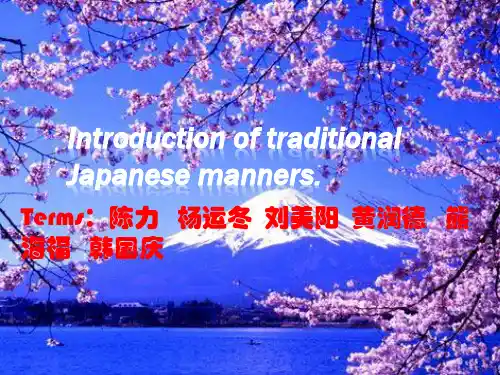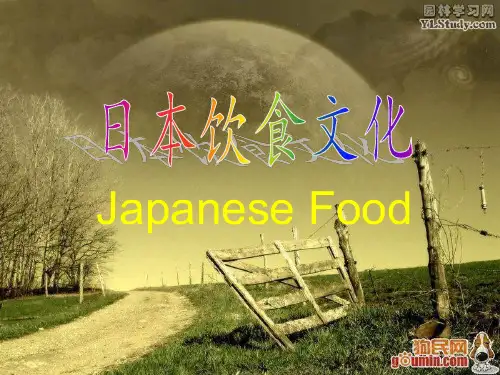日本饮食文化介绍(英文ppt)
- 格式:ppt
- 大小:1.58 MB
- 文档页数:12
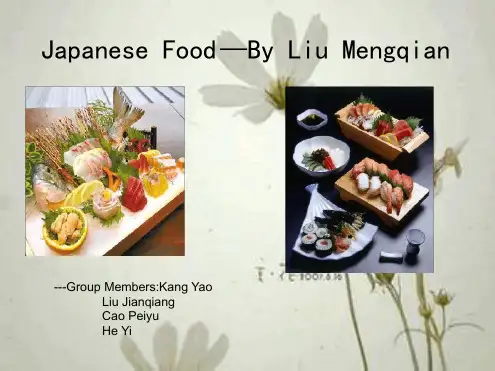
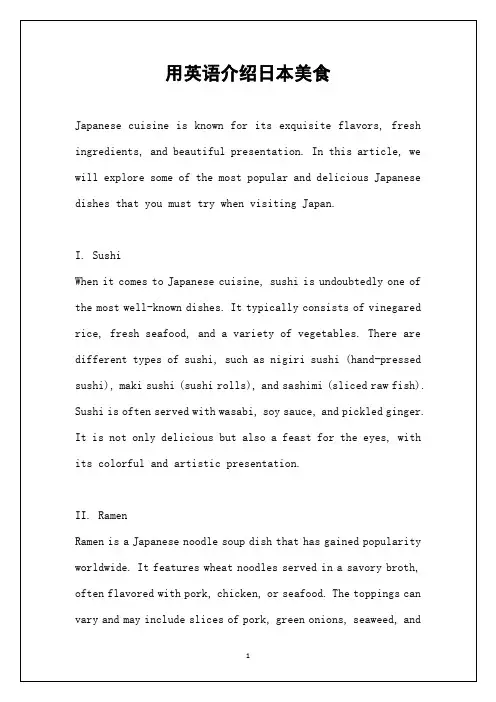
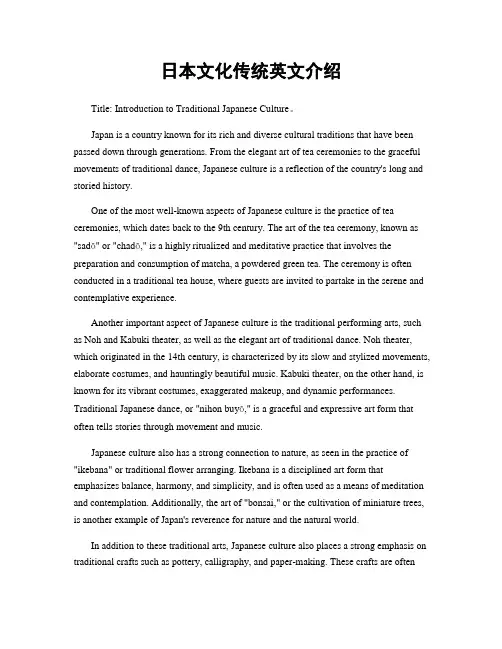
日本文化传统英文介绍Title: Introduction to Traditional Japanese Culture。
Japan is a country known for its rich and diverse cultural traditions that have been passed down through generations. From the elegant art of tea ceremonies to the graceful movements of traditional dance, Japanese culture is a reflection of the country's long and storied history.One of the most well-known aspects of Japanese culture is the practice of tea ceremonies, which dates back to the 9th century. The art of the tea ceremony, known as "sadō" or "chadō," is a highly ritualized and meditative practice that involves the preparation and consumption of matcha, a powdered green tea. The ceremony is often conducted in a traditional tea house, where guests are invited to partake in the serene and contemplative experience.Another important aspect of Japanese culture is the traditional performing arts, such as Noh and Kabuki theater, as well as the elegant art of traditional dance. Noh theater, which originated in the 14th century, is characterized by its slow and stylized movements, elaborate costumes, and hauntingly beautiful music. Kabuki theater, on the other hand, is known for its vibrant costumes, exaggerated makeup, and dynamic performances. Traditional Japanese dance, or "nihon buyō," is a graceful and expressive art form that often tells stories through movement and music.Japanese culture also has a strong connection to nature, as seen in the practice of "ikebana" or traditional flower arranging. Ikebana is a disciplined art form that emphasizes balance, harmony, and simplicity, and is often used as a means of meditation and contemplation. Additionally, the art of "bonsai," or the cultivation of miniature trees, is another example of Japan's reverence for nature and the natural world.In addition to these traditional arts, Japanese culture also places a strong emphasis on traditional crafts such as pottery, calligraphy, and paper-making. These crafts are oftenpassed down through families and communities, and are valued for their beauty, precision, and connection to the past.Overall, traditional Japanese culture is a reflection of the country's deep respect for history, nature, and the arts. From the serene beauty of tea ceremonies to the vibrant performances of traditional theater, Japan's cultural traditions continue to inspire and captivate people around the world.。
